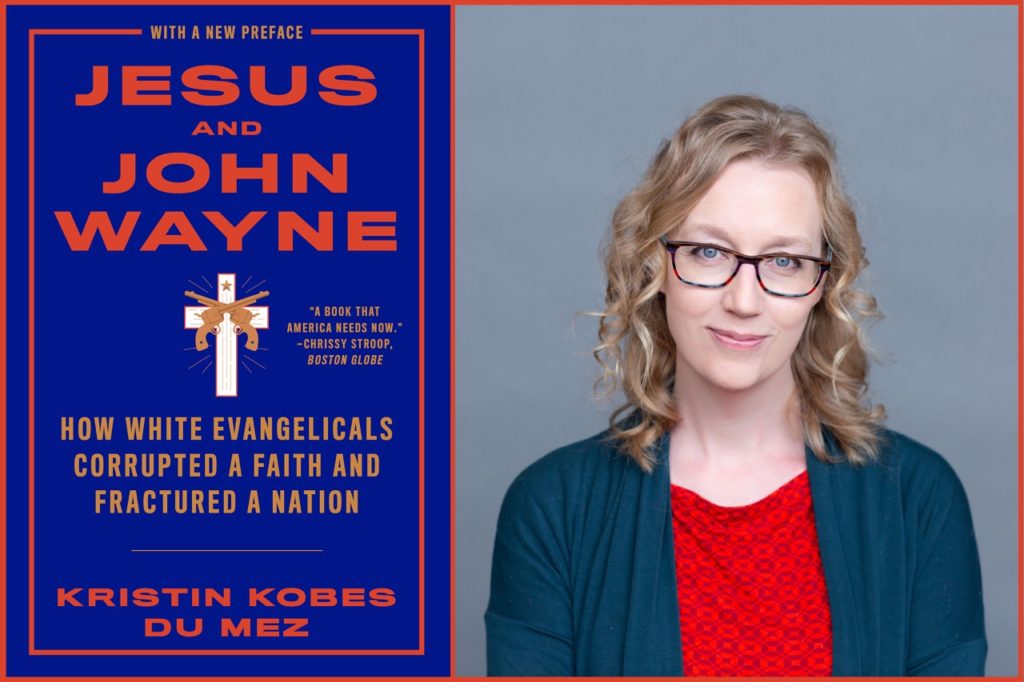In her unexpected NYT bestseller, Jesus and John Wayne, historian Kristin Du Mez traces how a militant ideal of white Christian manhood has come to pervade evangelical popular culture in America and as a result how the evangelical church is failing many mainstream Christian Americans.
Joining the conversation are historians Jemar Tisby and Jon Butler. Jemar Tisby is author of The Color of Compromise and How to Fight Racism, published in 2021. He is the founder of The Witness and co-hosts the Pass The Mic podcast. Keep up with his latest musings via his newsletter, Footnotes.
Jon Butler is Professor Emeritus of American Studies, History, and Religious Studies at Yale University. His books include Becoming America and the prize-winning Awash in a Sea of Faith and Huguenots in America. His new book is God in Gotham: The Miracle of Religion in Modern Manhattan.
Recorded 9/20/2021

Over several decades, Hollywood’s icons of strong men portrayed by actors like John Wayne and Mel Gibson in Braveheart, transformed core biblical teachings such as loving one’s neighbors and enemies, with a militant battle cry. Mainstream evangelical leaders preached a mutually reinforcing vision of Christian masculinity – of patriarchy and submission, sex and power. This culminated in the hero worship of Trump who embodied their idea of militant masculinity, as protector and warrior. Even if this meant betraying their own moral values.
Du Mez, an historian at Calvin University, delves into the hypocrisy and disconnect between purported Christian ethics and the rise of sexual abuse, corruption and scandal within the evangelical church. She argues that the current brand of Christian nationalism which has come to dominate national politics and family values in recent times, is “more John Wayne than Jesus”.
Have you recently left your religion for reasons of disgust and hypocrisy relating to abuse, corruption or misogyny? Is there still an important place for organized religion in America?
